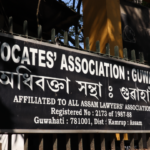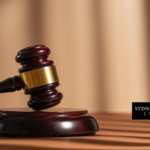Should ASIO be Trusted with even More Power?

The ASIO officer drew a ‘Y’ in the sand with a stick.
He looked across at the 21-year-old university student and pointed to the intersection of the Y.
He said: “We’ve got two choices. We can go down the difficult path or a less difficult path.
The difficult path would mean that we stand here putting these questions to you like this, having you tell us things which we know to be untrue… Or, we can take a less difficult path which would involve you co-operating and proving truthful answers to our questions and assisting us.”
“We can make life very difficult for you and your family, and if you don’t co-operate with us, you’re not going to be able to continue your studies.”
These were both statements made to medicine student, Izhar ul-Haque, who attended the University of New South Wales and was suspected of receiving training from a terrorist organization.
With the increases to ASIO powers that are currently being contemplated, it is clear that they may soon be given a lot more power than previously.
Unfortunately, past experiences like ul-Haque’s have shown that ASIO officers have not always acted above board.
In this case, seven years ago, ASIO officials were caught acting so out of line that it actually led to the abandonment of the case.
When the case made it up to the Supreme Court of NSW, Justice Adams found that the evidence that was gathered from ul-Haque’s ‘admissions’ could not be used in court.
It wasn’t until four agonizing years after his initial interrogations that ul-Haque was vindicated.
The identity of the ASIO officials remains undisclosed.
Ul-Haque got off his evening train when he was grabbed by the officers and taken to a park for questioning, leaving his younger brother alone in the car waiting for him.
Although, as is often the case, the word ‘arrest’ was never used, it was clear that ul-Haque felt that he had no choice but to comply and accompany the officers.
After the questioning, one of the officers told ul-Haque that he would drive the student to his home, which was already being searched by other officers.
Ul-Haque was detained even though the officers knew they had no legal right to.
Their language was framed in such a way as to make him believe that if he did not comply with the officers he may be subjected to force or taken to a more sinister place for interrogation.
He was told that he must tell the truth, and was given hints by the ASIO officers of what this ‘real truth’ was.
Since this method is, obviously, a way where an innocent person can be pressured into saying whatever the interrogator wants to hear, it is not a method that police should use when questioning people.
The officers implied that they did have authority to require ul-Haque to come with them or answer their questions.
He was then questioned back at his house, from about midnight into the early hours of the morning.
The evidence was thrown out of court because the judge found that the officers had been guilty of false imprisonment and kidnapping.
Because of this, any further interviews by police were not admissible in court. The implicit threats that were made to ul-Haque meant that when he was questioned by the police about 12 hours later.
The interview by ASIO made sure that ul-Haque felt that if he didn’t answer all the police questions he would be in serious trouble.
Under the Evidence Act, illegally or improperly obtained information can be prevented from being used as evidence in court.
This is the case for admissions that were obtained by the use of violent, oppressive, inhuman or degrading conduct, or the threat of such conduct.
The behaviour was found to be completely illegal.
But perhaps this is not the most interesting part of the judgment.
In summing up, Justice Adams stated that “there is no suggestion that the officers acted contrary to ASIO protocols and good reason for thinking they did not.”
The proposed laws as they now stand mean that if ASIO engaged in similar treatment in the future, any evidence that officers obtained would not be kept from the court.
Section 35A(2) of the National Security Legislation Amendment Bill (No 1) 2014 means that illegally or improperly obtained evidence can be allowed in court if it was obtained by a participant in a special intelligence operation and the criminal activity was special intelligence conduct.
The Bill, which has cleared the Senate, will also allow the entire Australian web to be monitored with just one warrant.
The wide-ranging terrorism laws enacted in 2007 had already been described as ‘draconian’ – yet the new legislation means that ASIO officers are likely to become even less accountable.






